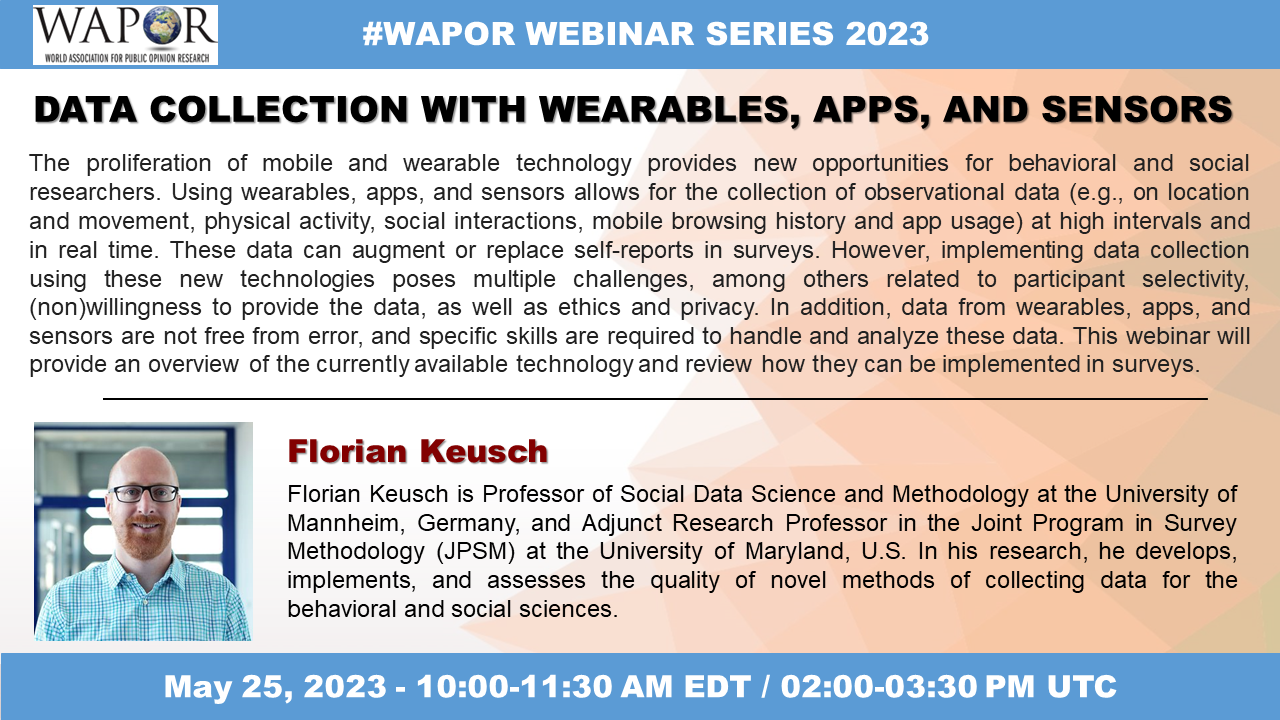May 2023 – Data Collection with Wearables, Apps, and Sensors
In 2023, WAPOR resumes our education program with a new series of webinars on public opinion research methodology. Our forth webinar of 2023 will take place on Thursday, May 25 at 10.00-11.30 AM EDT. Our excellent speaker, Florian Keusch, Professor of Social Data Science and Methodology at the University of Mannheim, Germany, and Adjunct Research Professor in the Joint Program in Survey Methodology (JPSM) at the University of Maryland, U.S., will deliver a talk on “Data Collection with Wearables, Apps, and Sensors”. Attendance is free of charge; WAPOR membership is not required. Michael Traugott (University of Michigan, USA), WAPOR former president and Education Committee member, will moderate the discussion.
Slides: Data Collection with Wearables, Apps, and Sensors
Video: Data Collection with Wearables, Apps, and Sensors
Data Collection with Wearables, Apps, and Sensors
The proliferation of mobile and wearable technology provides new opportunities for behavioral and social researchers. Using wearables, apps, and sensors allows for the collection of observational data (e.g., on location and movement, physical activity, social interactions, mobile browsing history and app usage) at high intervals and in real time. These data can augment or replace self-reports in surveys. However, implementing data collection using these new technologies poses multiple challenges, among others related to participant selectivity, (non)willingness to provide the data, as well as ethics and privacy. In addition, data from wearables, apps, and sensors are not free from error, and specific skills are required to handle and analyze these data. This webinar will provide an overview of the currently available technology and review how they can be implemented in surveys.
Florian Keusch is Professor of Social Data Science and Methodology at the University of Mannheim, Germany, and Adjunct Research Professor in the Joint Program in Survey Methodology (JPSM) at the University of Maryland, U.S. In his research, he develops, implements, and assesses the quality of novel methods of collecting data for the behavioral and social sciences. In particular, he is interested in how to jointly collect self-reports (usually via (mobile) web surveys) and passive measurement from smartphone and wearable sensors, online and device log files, Internet search queries, and other digital traces to better study research questions on migration, employment, and inequality.



